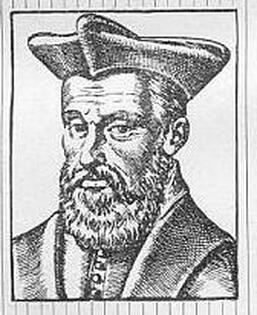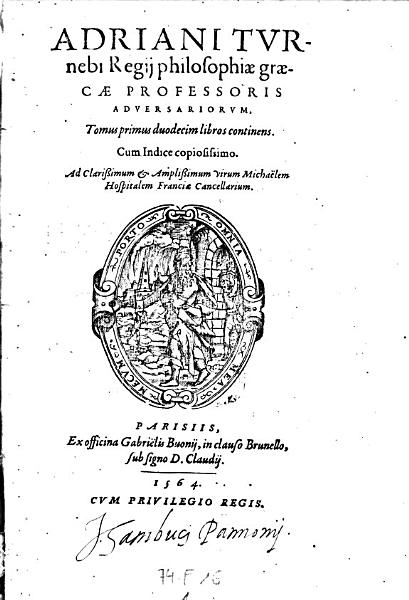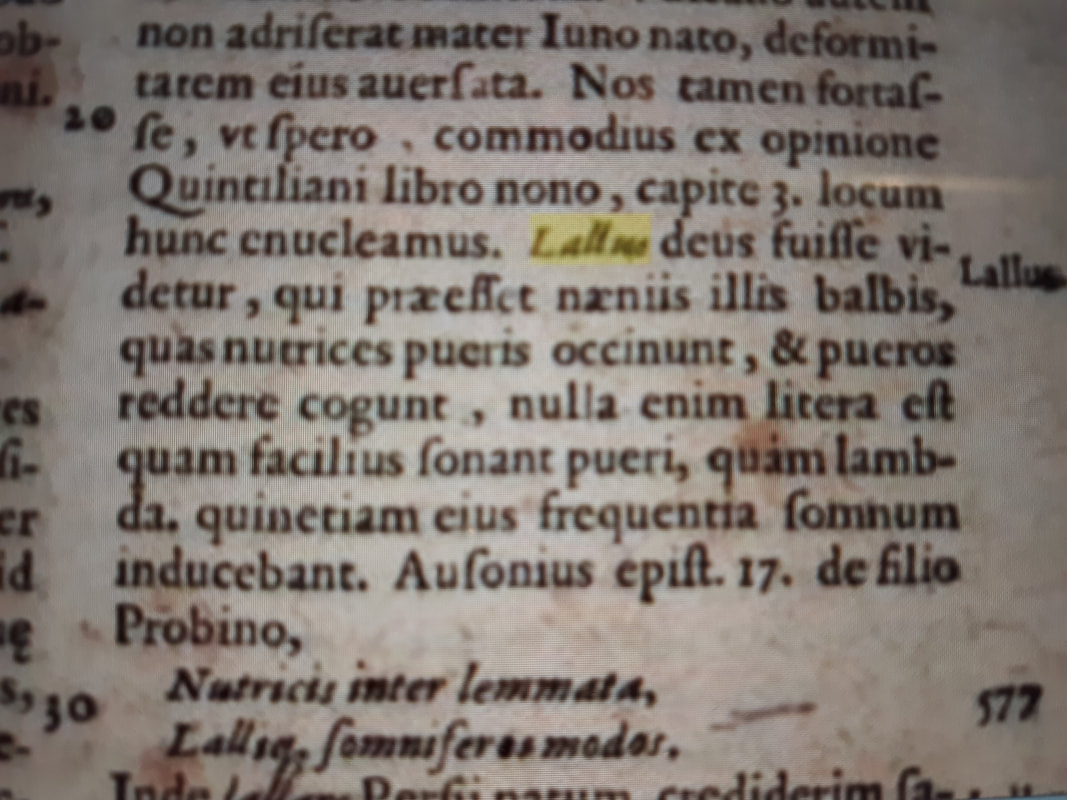
Authority Cited: Turnebus [Adrien Turnebe]
Author name and dates: Adrien Turnebe (1512-1565)
BKG Bio-tweet: French classical scholar; J.J. Scaliger a pupil; SJ comments on Turnebus lullaby etymology in a Latin phrase
Categories (list of works cited – preliminary) [BKG Note: one Turnebus cite identified in 1755 Dict. vol. 2. No additional Turnebus cites were identified in the 1773 Dict. I looked at both Skinner and Junius etymologies and did not find a reference to Turnebus.]
Author name and dates: Adrien Turnebe (1512-1565)
BKG Bio-tweet: French classical scholar; J.J. Scaliger a pupil; SJ comments on Turnebus lullaby etymology in a Latin phrase
Categories (list of works cited – preliminary) [BKG Note: one Turnebus cite identified in 1755 Dict. vol. 2. No additional Turnebus cites were identified in the 1773 Dict. I looked at both Skinner and Junius etymologies and did not find a reference to Turnebus.]
- Turnebus (no work cited); lullaby. The Dict. entry reads: LULLABY (LU'LLABY) n.s.[lallus, Latin. Quem nutricum fuisse deum contendit Turnebus, from lull: it is observable that the nurses call sleep by, by; lullaby is therefore lull to sleep.] [BKG Note: Emeritus Prof. Barry Baldwin (U. of Calgary) has kindly provided the following: "I think the Latin can only mean: 'lallus, Whom Turnebus contends was the god of nurses'." (I am not clear with respect to why SJ provided this explanation in Latin rather than English.) Prof. Baldwin also comments: "Johnson’s source appears to be Turnebus’ Adversaria 18.34 . . . . It goes back to classical Latin. Roman nurses/mothers sang La-La to lull their kiddies to sleep (see, e.g. Persius, Satire 3.18, also the Oxford Latin Dictionary). From this was evolved a god or presiding spirit called Lalla or Lallus." See images below of the Adversaria 1564 title page and the Ch. 18. 34 text from the 1604 edition. For additional debate on whether Turnebus's contention that lallus was a Roman deity was correct, Prof. Baldwin suggests Encyclopaedia Metropolitana: Miscellaneous and Lexicographical, 1845, volume 19, p.597, under lull.]

